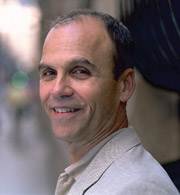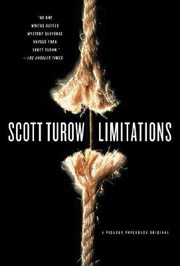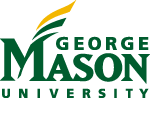A Five-Minute Interview: Bestselling Author Scott Turow
By Colleen Kearney Rich, MFA ’95
Attorney Scott Turow was catapulted into the national spotlight with the publication of his 1987 bestseller Presumed Innocent. Since then, Turow has gone on to produce seven more legal mysteries, all set in his fictional Kindle County, Illinois. His latest novel, Limitations, revolves around the tribulations of Judge George Mason, a direct descendent of patriot George Mason, as he receives threatening e-mails while preparing to hear a high-profile rape case before his Court of Appeals.
This is not the first appearance of Mason’s fictional relative in Turow’s work. Since his appearance in Presumed Innocent, Mason, the character, has enjoyed a successful career as a criminal defense attorney in Kindle County, defending Sandy Stern in The Burden of Proof and Robbie Feaver in Personal Injuries before being appointed to the bench.
Turow himself has also enjoyed a successful law career. He has been a partner in the Chicago office of Sonnenschein Nath & Rosenthal since 1986, devoting his time to pro bono work. He lives outside Chicago with his family.
How did the character of George Mason come to be?
George has been floating through my fiction for many years. He first appears as a disappointed supporter of Raymond Horan who was Rusty Sabich’s boss in Presumed Innocent. [Mason] is a prominent criminal lawyer. For some reason the name just stuck with me, and at first I didn’t realize why.
“By the time I got to my fifth novel, Personal Injuries—George narrates that novel—I began to be conscious of where I had gotten the name from. That compels a certain backstory for George. He had to be from Virginia, and he had to be a lineal descendent because that has certain symbolic significance. The real George Mason, as George thinks about him, is one of the great figures in American law and constitutional principle.
As always happens with novelists, you sort of blunder into your best situations. It is obviously a really rich thing for George to carry with him a continual consciousness of the real George Mason and wonder how he would respond to seeing things like what’s happened with the First Amendment. George operates with an abiding faith that he and the real George Mason share something, which is the belief in the value of law. It is honor, family, tradition, and justice. It works for that character really well.
Do you have connections to George Mason or Virginia?
The [inspiration for the character] is drawn from one of my very dearest and closest friends, Julian Soloporovsky, who is a graduate of University of Virginia. It is a little tribute to Julian to make this extremely honorable man, George Mason, a Virginian. That’s where that comes from. I also have a good friend who is a graduate of Mason—Howard Rigsby [BA English ’77]. He has talked to me about George Mason regularly.



